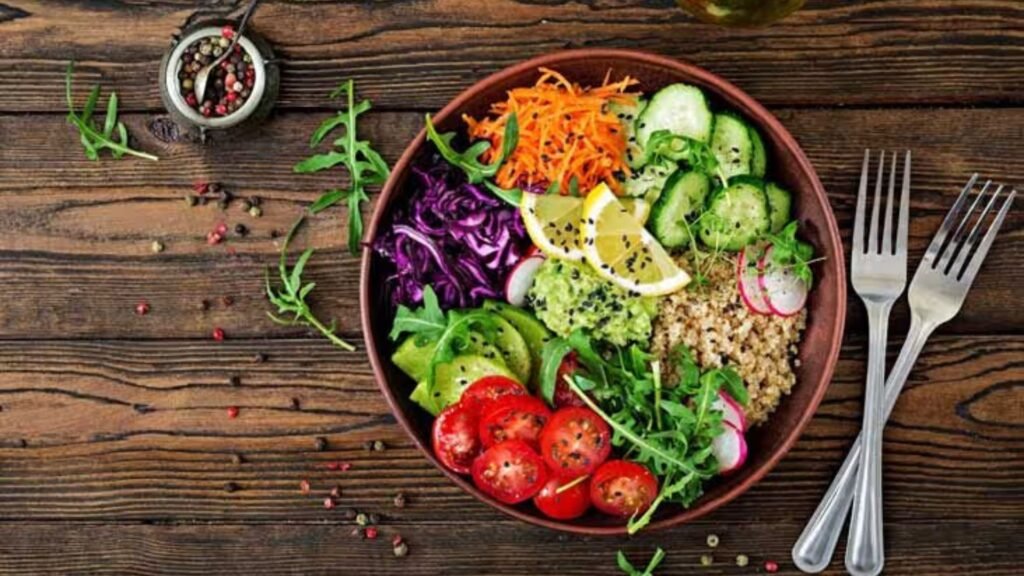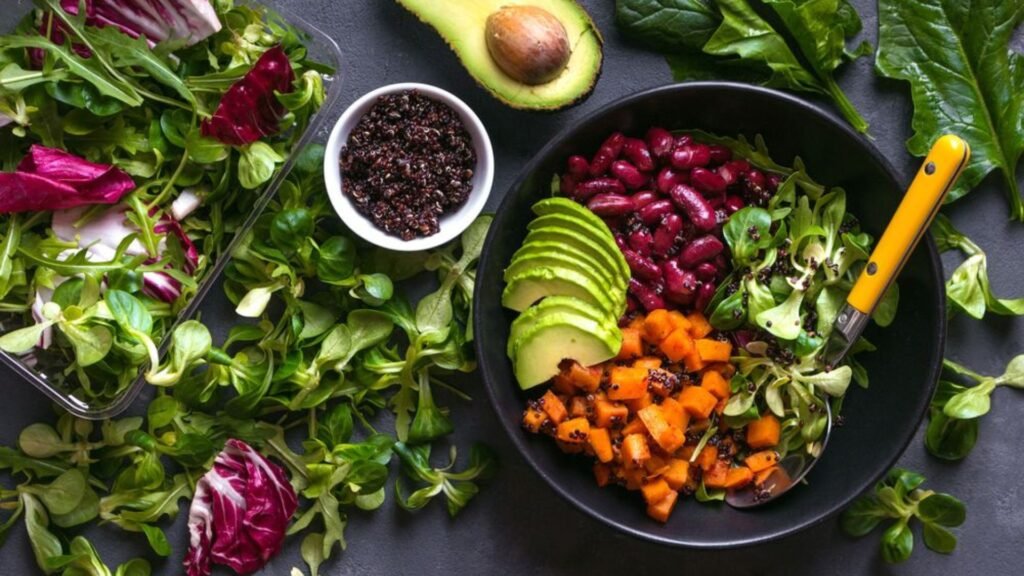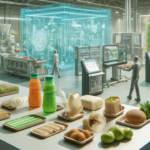Creating a balanced vegan meal plan can seem daunting at first, but with a bit of guidance, it becomes straightforward and enjoyable. A balanced vegan meal plan ensures you get all the necessary nutrients while sticking to a plant-based diet. Let’s explore how you can create a balanced vegan meal plan that works for you.
Understanding Vegan Nutrition
When planning a balanced vegan meal plan, it’s crucial to understand the basics of vegan nutrition. Unlike omnivorous diets, a vegan diet excludes animal products. Therefore, you must find alternative sources for essential nutrients such as protein, iron, calcium, vitamin B12, and omega-3 fatty acids. By focusing on a variety of plant-based foods, you can meet your nutritional needs and maintain a healthy diet.

Include a Variety of Protein Sources
Protein is a vital part of any balanced vegan meal plan. Since animal products are off the table, look for plant-based protein sources such as beans, lentils, tofu, tempeh, and seitan. Nuts and seeds, like chia seeds and hemp seeds, are also excellent sources of protein. Incorporate these protein-rich foods into your meals to ensure you get enough of this crucial nutrient.
Incorporate Whole Grains
Whole grains are a staple in a balanced vegan meal plan. They provide essential nutrients and fiber that are important for digestive health. Options such as quinoa, brown rice, oats, and whole wheat are great choices. Whole grains help to keep you full and satisfied while providing a steady source of energy throughout the day.
Emphasize Fruits and Vegetables
Fruits and vegetables should form the foundation of your vegan meal plan. They are rich in vitamins, minerals, and antioxidants that support overall health. Aim to include a variety of colorful fruits and vegetables in your meals. This variety ensures you get a broad spectrum of nutrients and keeps your diet interesting and flavorful.
Ensure Adequate Iron Intake
Iron is another crucial nutrient in a balanced vegan meal plan. Plant-based sources of iron include lentils, chickpeas, tofu, quinoa, and dark leafy greens like spinach and kale. To enhance iron absorption, pair these foods with vitamin C-rich vegetables and fruits, such as bell peppers and oranges.
Add Healthy Fats
Healthy fats are important for a balanced vegan meal plan. Include sources of omega-3 fatty acids, such as flaxseeds, chia seeds, and walnuts. Avocados and olive oil are also excellent choices for healthy fats. These fats support heart health and help with the absorption of fat-soluble vitamins.
Consider Vitamin B12 Supplements
Vitamin B12 is a nutrient that’s difficult to obtain from a vegan diet alone. It’s essential for nerve function and the production of red blood cells. Since B12 is found primarily in animal products, it’s important to include fortified foods or take a B12 supplement to ensure you meet your needs.
Plan Balanced Meals
When creating your vegan meal plan, aim for balanced meals that include a good mix of protein, carbohydrates, and fats. For example, a meal could include quinoa (carbohydrates), black beans (protein), and avocado (healthy fats). This balance helps to maintain steady energy levels and keeps your meals satisfying.
Stay Hydrated
Hydration is a key component of any healthy meal plan, including a vegan one. Drink plenty of water throughout the day to stay hydrated. Herbal teas and infused water with fruits or herbs can also be refreshing and hydrating options.
Snack Smart
Healthy snacks are an important part of a vegan meal plan. Choose snacks that offer nutritional benefits, such as fruit, nuts, seeds, or whole-grain crackers. Avoid highly processed snacks that may be low in nutrients and high in sugars or unhealthy fats.
Plan for Special Nutrients
In addition to B12, consider other nutrients that might need special attention in a vegan diet. For example, calcium and vitamin D are important for bone health. Look for fortified plant-based milk and juices to help meet these needs, or consider a supplement if necessary.
Be Mindful of Portion Sizes
Portion sizes play a role in maintaining a vegan meal plan. Eating large quantities of even healthy foods can lead to imbalances. Pay attention to portion sizes to ensure you are getting the right amount of each nutrient without overdoing it.
Adjust Based on Personal Needs
Every individual’s nutritional needs can vary, so it’s important to adjust your vegan meal plan based on your personal health goals and preferences. Monitor how you feel and make adjustments as needed to ensure you are meeting your nutritional needs and feeling your best.
Use Meal Prep to Stay Organized
Meal prepping can make sticking to a vegan meal plan easier. Prepare meals in advance and store them in the refrigerator or freezer for quick and convenient options throughout the week. This practice helps you maintain consistency and saves time.
Conclusion
Creating a balanced vegan meal plan involves understanding your nutritional needs and incorporating a variety of plant-based foods. By including diverse protein sources, whole grains, fruits, vegetables, and healthy fats, you can maintain a nutritious and satisfying diet. Stay mindful of key nutrients, plan balanced meals, and adjust as needed to create a meal plan that works for you. With these tips, you can enjoy a healthy and delicious vegan lifestyle.



